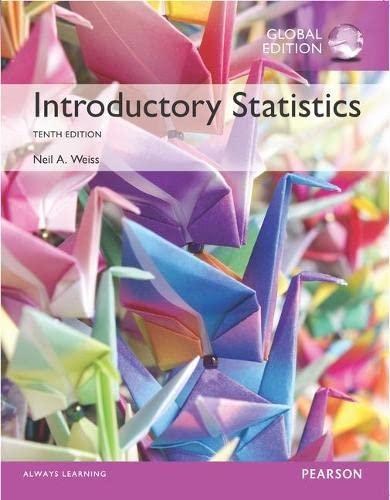Catalyst. A catalyst is a substance that starts or accelerates a chemical reaction without undergoing any permanent
Question:
Catalyst. A catalyst is a substance that starts or accelerates a chemical reaction without undergoing any permanent change itself.
A chemist, while adding a particular catalyst to a reaction, observes that the time elapsed for the reaction to complete has a special type of reverse-J-shaped distribution called an exponential distribution. He also indicates that the mean time elapsed is 9.2 minutes, as is the standard deviation. Suppose that you observe a sample of 10 elapsed times.
a. Theoretically, what are the mean and standard deviation of all possible sample means?
b. Use the technology of your choice to simulate 1000 samples of 10 elapsed times each.
c. Determine the mean of each of the 1000 samples you obtained in part (b).
d. Roughly what would you expect the mean and standard deviation of the 1000 sample means you obtained in part
(c) to be? Explain your answers.
e. Determine the mean and standard deviation of the 1000 sample means you obtained in part (c).
f. Compare your answers in parts
(d) and (e). Why are they different?
a. Find the sampling distribution of the sample mean for samples of size 5.
b. Repeat part
(a) for samples of size 10.
c. Construct graphs similar to those shown in Fig. 7.4 on page 343.
d. Obtain the percentage of all samples of five finishers that have mean finishing times within 5 minutes of the population mean finishing time of 26.09 minutes. Interpret your answer in terms of sampling error.
e. Repeat part
(d) for samples of size 10.
Step by Step Answer:






